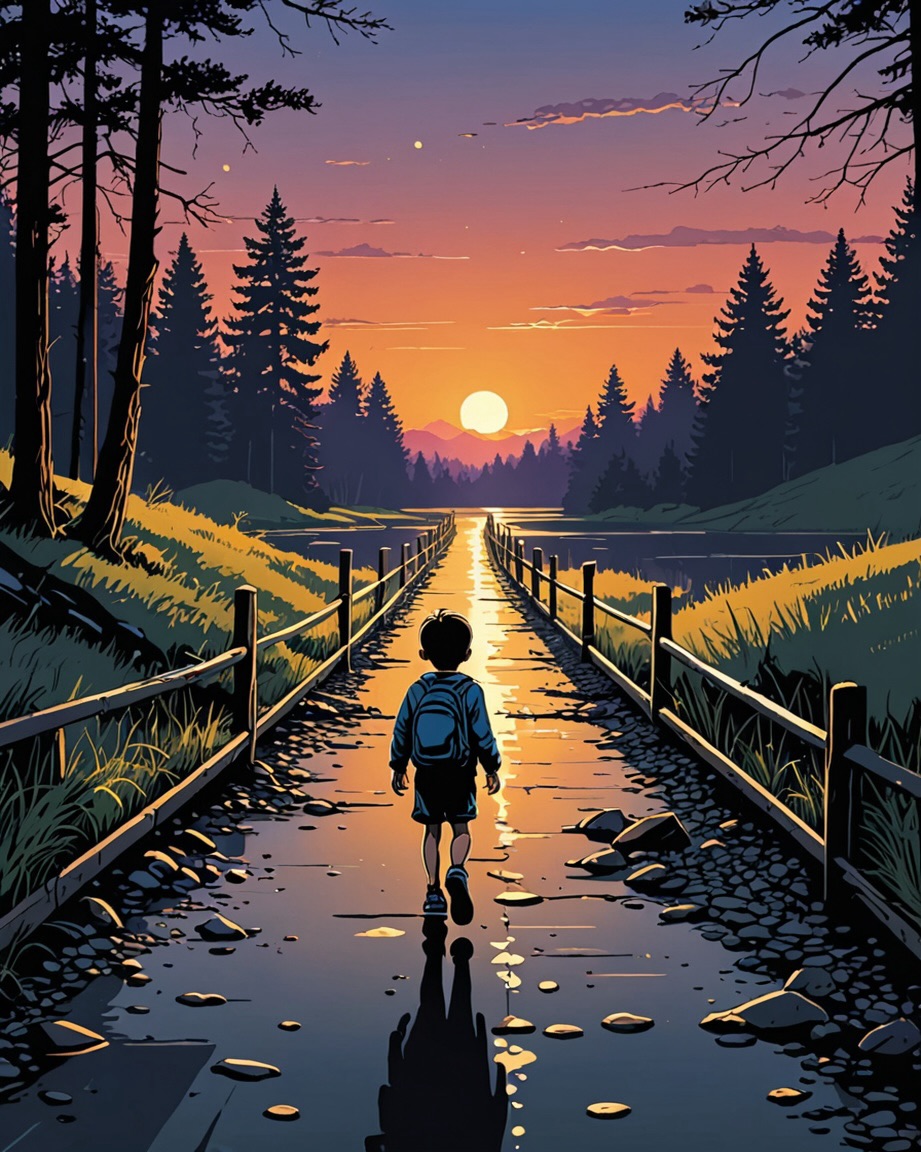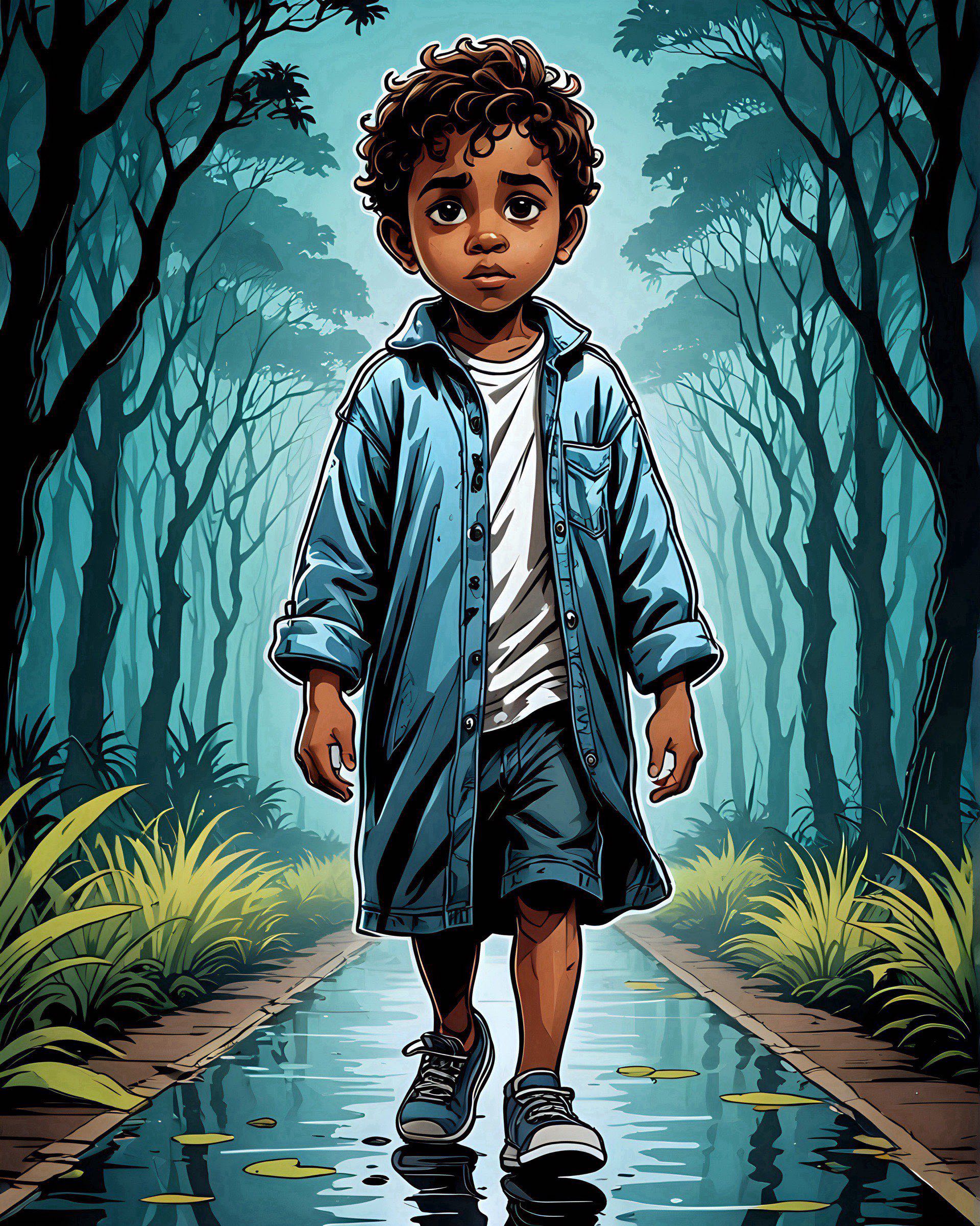A Lonely Ride Home v3

My wife and I lived on the grounds of Ratu Kadavulevu School (RKS), a boarding school nestled deep in the rural stretches of Tailevu. Each day, I endured a long commute to Suva—a three-hour bus ride over rugged gravel roads that rocked me into a half-sleep. At 4 a.m., the darkness pressed against the bus windows as we left for the city. I would drift in and out of consciousness, lulled by the jolts and sways, until we finally reached Suva at 7 a.m.
The return journey after work was always more complicated—a patchwork of minivans and luck. From Suva to Nausori, Nausori to Korovou. If we missed the last bus from Korovou, my friend Sikeli and I would hire a ute, splitting the cost. The drivers of these carriers knew everyone in the area and always had news or stories to share.
One evening, Sikeli and I missed the bus, so we climbed into the back of a dusty old ute as the sun dipped behind the hills. The driver, a local man with deep lines etched into his face, navigated the winding gravel road as twilight melted into dusk. The shadows of the trees grew long and twisted. As we passed a small village by a river, crossing a narrow bridge, I noticed the figure of a child running along the road ahead.
It wasn’t unusual in these parts. Children often lingered too long at the river, lost in play, only to find themselves alone on the way home. The boy was drenched, water streaming off his small frame, and he ran with a desperation that tugged at me. I asked the driver to slow down, offering to give the child a ride.

The driver didn’t slow. I had to ask again, more firmly this time, and finally, he pulled over. The boy leapt onto the tray of the ute without hesitation. Through the rear-view window, I could see him—shirtless, wearing only a pair of soaked shorts. He looked cold, shivering slightly, his eyes locked onto mine. There was something unsettling in the way he stared, unblinking, almost as if searching for something in my face. Then, a small wave—a sign that he was safely on board.
“He’s a local boy,” the driver muttered, his voice flat. I told him I didn’t mind dropping the boy off first, assuming his village was near. The road was narrow and winding, and the villages were mere specks of light swallowed by the encroaching night. But the driver never slowed down. Village after village flashed by, the boy still in the back, water pooling beneath him, his eyes never leaving mine through the window.
When the lights of RKS finally broke through the darkness, I glanced back. The boy was gone. Only a wet patch remained on the tray where he had been sitting. A chill ran through me. I snapped at the driver, asking why he hadn’t stopped. The boy must have jumped out along the way. What if he was hurt? The thought of him tumbling out onto the rough gravel at such speed made my stomach twist.
The driver pulled into my driveway and turned off the engine. He looked at me, his face pale, his eyes wet with tears. “I didn’t want to say anything on the dark road,” he began, his voice trembling. “Spirits… they can do terrible things in the night.”
He took a deep breath and continued, “That boy—his family lives just over the hill after the bridge. This morning, he was swimming in the river when a truck lost control and crashed off the bridge, pinning him to the riverbed. They towed the truck away, but his body… they never found it.”
My heart pounded in my chest, a cold dread creeping up my spine. I realized then that what I had seen wasn’t a lost boy but a lost soul—a phantom hitchhiker trying to find his way home. The last of his spirit, wet and shivering, still wandering the lonely road, caught between worlds.

And as I lay awake that night, listening to the wind rustle through the trees, I couldn’t shake the image of his eyes—searching, empty, and desperately sad—still looking for someone to help him find his way back.
// ———— The End ———//
If you enjoy what we do, consider supporting us on Ko-fi! Every little bit means the world!

Comments
Post a Comment